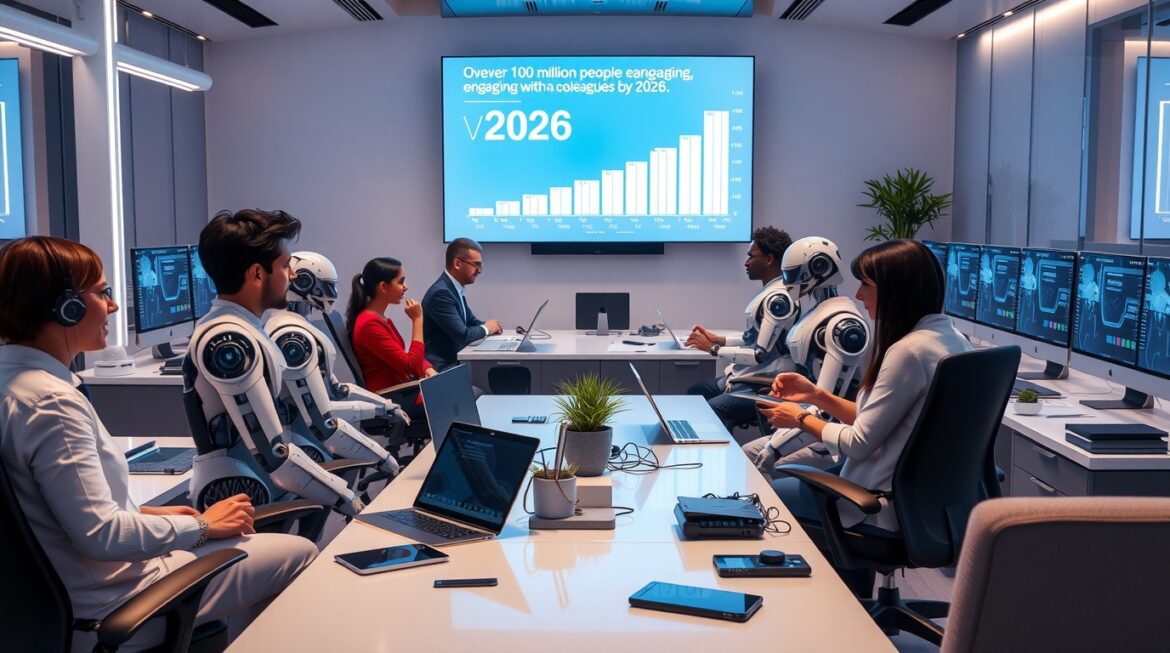Gartner’s AI Forecast: Over 100 Million Workers to Collaborate with AI by 2026
In a groundbreaking prediction, leading research firm Gartner has forecasted that by 2026, over 100 million people worldwide will be actively engaging with AI colleagues in their daily professional tasks. This signals a major transformation in the future of work, as artificial intelligence (AI) continues to evolve from a background tool into an active team member.
The Rise of AI in the Workplace
According to Gartner’s latest report, the integration of AI into workspaces is not just accelerating — it’s becoming unavoidable. From virtual assistants and intelligent chatbots to decision-support systems and autonomous project managers, AI is shifting from a passive resource to a collaborative partner.
“Organizations are no longer asking if they should implement AI, but rather how fast they can integrate AI solutions into daily operations,” said Susan Moore, VP Analyst at Gartner. “By 2026, the collaboration between humans and AI will be seamless, enhancing productivity, decision-making, and innovation.”
Companies such as Microsoft with their AI-powered Copilot system, and Google with its Vertex AI, are already leading the charge, embedding artificial intelligence deeply into professional workflows.
The Impact of AI Colleagues on Industries
The impact of AI colleagues will span across various sectors, including healthcare, finance, manufacturing, and education. AI will assist doctors with diagnostics, help bankers detect fraud, optimize manufacturing supply chains, and even customize educational experiences for students.
These AI colleagues won’t just automate tasks; they’ll contribute ideas, suggest optimizations, and anticipate potential problems before they arise. Workers will need to develop new skills in AI management, data literacy, and ethical oversight to thrive in this new environment.
The Challenges and Ethical Considerations
While the benefits are immense, Gartner warns about potential challenges. As AI ethics becomes a growing concern, organizations must ensure transparency, fairness, and accountability in their AI systems.
Privacy issues, biases in decision-making, and a potential over-reliance on automation are risks that companies must proactively address. Regulatory frameworks like the EU Artificial Intelligence Act and increasing calls for AI governance in the United States highlight the urgency to create responsible AI standards.
“Human oversight remains essential,” Moore emphasized. “AI colleagues must augment human capabilities, not replace them.”
Preparing for an AI-Integrated Future
To prepare for this shift, Gartner recommends that organizations invest in AI training programs for employees, foster a culture of continuous learning, and build multidisciplinary teams that combine technical expertise with human-centered design thinking.
As businesses and workers adapt, partnerships between humans and AI will create more dynamic, efficient, and innovative workplaces. The future won’t be about humans versus machines — it will be about humans and machines working together.


